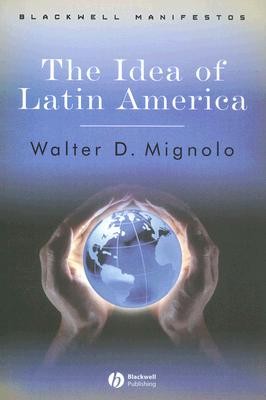| Idea of Latin America Contributor(s): Mignolo, Walter D. (Author) |
|
 |
ISBN: 1405100869 ISBN-13: 9781405100861 Publisher: Wiley-Blackwell OUR PRICE: $44.50 Product Type: Paperback - Other Formats Published: January 1991 Annotation: The term "Latin" America supposes that there is an America that is Latin, which can be defined in opposition to one that is not. This geo-political manifesto revisits the idea of Latinity, charting the history of the concept from its emergence in Europe under France's leadership, through its appropriation by the Creole elite of South America and the Spanish Caribbean in the second half of the nineteenth century, up to the present day. Reinstating the indigenous peoples, the enormous population of African descent and the 40 million Latino/as in the US that are rendered invisible by the image of a homogenous Latin America, the author asks what is at stake in the survival of an idea which subdivides the Americas. He explains why an "American Union" similar to the European Union is at this point unthinkable and he insists on the pressing need to leave behind an idea of Latinity which belongs to the Creole/Mestizo mentality of the nineteenth century. |
| Additional Information |
| BISAC Categories: - Political Science | International Relations - General |
| Dewey: 982 |
| Series: Blackwell Manifestos (Paperback) |
| Physical Information: 0.73" H x 6.28" W x 8.96" (0.76 lbs) 224 pages |
| Themes: - Cultural Region - Latin America |
| Descriptions, Reviews, Etc. |
| Publisher Description: The Idea of Latin America is a geo-political manifesto which insists on the need to leave behind an idea which belonged to the nation-building mentality of nineteenth-century Europe.
|